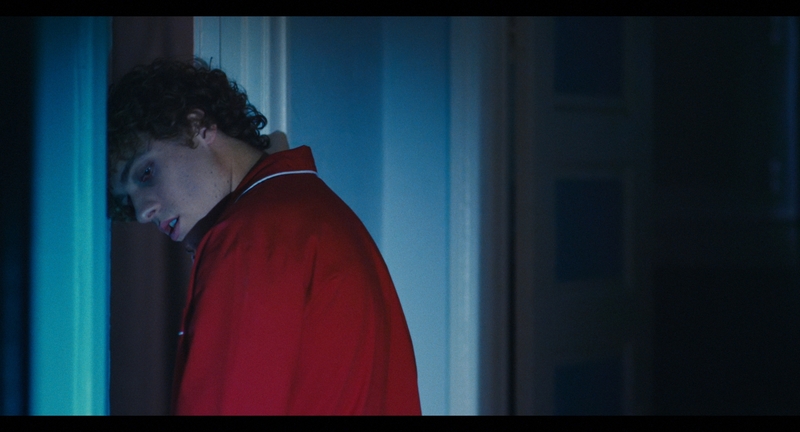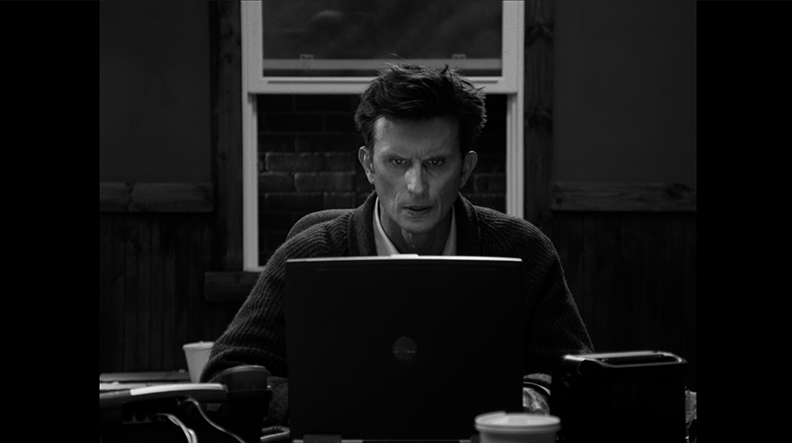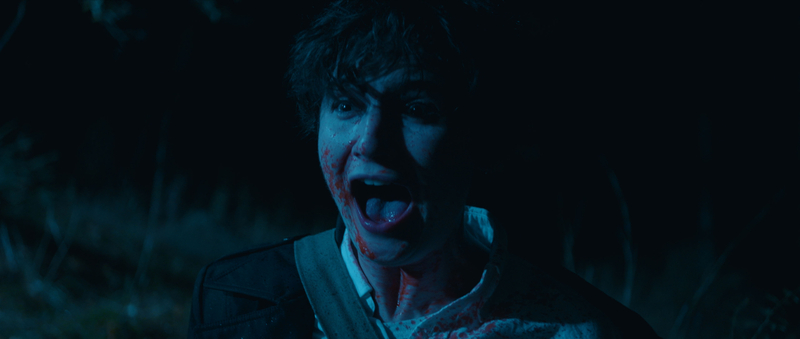
Memory, Madness, and the Measure of Redemption
MOVIE REVIEW
Soul to Squeeze
–
Genre: Adventure, Drama, Thriller
Year Released: 2025
Runtime: 1h 26m
Director(s): W.M. Weikart
Writer(s): W.M. Weikart, Andrew Rivas
Cast: Michal Thomas Santos, Danielle Meyer, Greg Baldwin, Ken Belsky, Roberta De Santis, Brianne Buishas, Jaden Hoff, Victor Amaya, Haley Hoffmeister, Ryan Addison, J.A. Ruiz
Where to Watch: available now on Prime Video here: www.amazon.com
RAVING REVIEW: In a landscape where psychological thrillers often lean on tired tropes and flashy aesthetics, SOUL TO SQUEEZE stands out by its restraint—and then slowly, methodically, pulling that restraint apart. What starts as a claustrophobic exploration of one man’s unraveling mental state morphs, quite literally, into something bigger. Director W.M. Weikart dares to build a film not just about perception but shaped by it, allowing form to follow function in a way that elevates the story beyond its roots.
Jacob, played with a specific intensity by Michael Thomas Santos, is a man who’s run out of ways to live with his mind. Plagued by a mental and emotional disintegration that feels unrelenting, he undergoes a mysterious experimental procedure meant to create a bridge between the physical body and the subconscious. Instead of healing, what he finds is a house—an eerie, liminal space. That becomes his pathway to understanding—or further collapse.
It’s an ambitious premise, but Weikart is smart enough not to overplay it. The horror here isn’t jump scares or haunted-house clichés—it’s psychological fragmentation, and it’s conveyed through disorientation, silence, and a slow burn. Time folds in on itself. Memories distort. Logic erodes. You’re not watching a character “figure things out,” you’re watching someone slowly accept that clarity might never come.
Santos carries the film almost entirely on his shoulders, and he does so with impressive restraint. There are no grand monologues or breakdowns performed for the camera. Instead, Santos offers a performance rooted in physical deterioration and internal panic. It’s not just the physicality that impresses. He delivers a performance that feels bruised but not broken, desperate but not hopeless.
There’s a haunting stillness to the production design—this is not a surrealist explosion of dream logic, but something more intimate and grounded. The house Jacob occupies doesn’t scream “metaphor” in neon—it just feels wrong. The hallways echo, the light flickers, and doors open to rooms you’ve seen before, just slightly off. The minimalist design allows the audience to sit with the character’s discomfort rather than getting distracted by an overbearing style.
What makes SOUL TO SQUEEZE work, beyond the visuals or Santos’ performance, is its willingness to live in uncertainty. If anything, it suggests that healing doesn’t always mean returning to who you were before the trauma. Sometimes healing means becoming someone else entirely—or being okay with never fully knowing who you are.
And that’s the strength of the writing by Weikart and Andrew Rivas, who also serves as producer. The script avoids exposition dumps or forced reveals. Instead, it unfolds in spaces, each one a little more unsettling than the last. The decision to keep the narrative confined to Jacob’s point of view is a risk, but it pays off. You’re in this with him, and that proximity makes the emotional moments—no matter how abstract—hit harder.
There are moments where the pacing slows more than it needs to, especially in the film’s second act, where a few scenes feel like echoes of previous ones without adding much new. And while the commitment to ambiguity is admirable, it occasionally becomes a hindrance, especially for viewers hoping for more grounded answers. But these are small stumbles in an otherwise confident walk through the shadows of the human mind. There’s no attempt to play to genre expectations or cater to conventional narrative structure. This is a film that asks to be felt, not solved.
SOUL TO SQUEEZE isn’t for everyone. It doesn’t provide the closure some may desire. It doesn’t offer easy catharsis. But for those willing to surrender to its slow, aching rhythm and deeply personal approach, it offers something rare: a film that doesn’t just explore the mind—it mirrors it. It shows the slow crawl from despair to clarity not as a triumphant arc, but as an unsettling expansion —a recalibration of the self. In the end, Jacob may not escape the labyrinth of his own mind. But he walks through it—quietly, cautiously, painfully. And sometimes, that’s enough.
Please visit https://linktr.ee/overlyhonestr for more reviews.
You can follow me on Letterboxd, Instagram, Twitter, and YouTube. My social media accounts can also be found on most platforms by searching for 'Overly Honest Reviews'.
I’m always happy to hear from my readers; please don't hesitate to say hello or send me any questions about movies.
[photo courtesy of BLUEBEARD PRODUCTIONS]
DISCLAIMER:
At Overly Honest Movie Reviews, we value honesty and transparency. Occasionally, we receive complimentary items for review, including DVDs, Blu-rays, CDs, Vinyl Records, Books, and more. We assure you that these arrangements do not influence our reviews, as we are committed to providing unbiased and sincere evaluations. We aim to help you make informed entertainment choices regardless of our relationship with distributors or producers.
Amazon Affiliate Links:
Additionally, this site contains Amazon affiliate links. If you purchase through these links, we may receive a commission. This affiliate arrangement does not affect our commitment to honest reviews and helps support our site. We appreciate your trust and support in navigating these links.



Average Rating